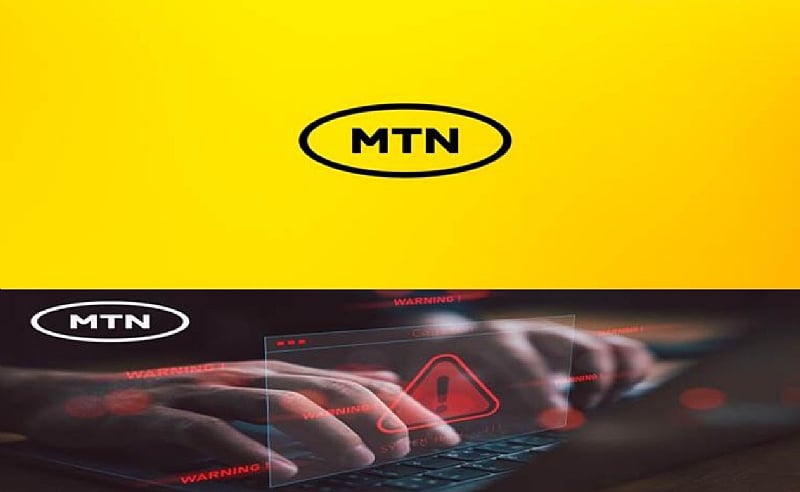MTN Ghana, the nation’s leading telecommunications giant, is under digital siege. On April 28, 2025, the company confirmed that a cyberattack had exposed the personal data of approximately 5,700 customers. While their core systems remain operational, this breach has triggered widespread concern about digital safety, privacy, and Ghana’s readiness to protect its digital citizens.
The cybersecurity incident has sent shockwaves across sectors—prompting urgent questions: Who is behind the attack? How exposed are we? And what must we do next?
What Happened?
According to a press release by MTN Group, an unauthorized third party infiltrated sections of their system and accessed customer data in certain markets, including Ghana. Although there is currently no evidence suggesting that mobile money accounts or customer wallets were directly compromised, the attackers did succeed in breaching personal information linked to specific users.
MTN Ghana has activated its cybersecurity protocols, informed relevant national and international authorities, and launched a full-scale forensic investigation with global cybersecurity experts. Law enforcement agencies including South Africa’s Hawks and Police Service are also involved.
MTN’s Response and Reassurance
Despite the breach, MTN Ghana has maintained that its core network, billing systems, and financial infrastructure remain secure and fully operational. The company has pledged transparency, assuring customers that safeguarding their privacy is their utmost priority.
In compliance with legal and regulatory obligations, MTN Ghana is directly notifying affected customers and keeping the public informed. More importantly, the telecom provider is encouraging all users to strengthen their personal digital security.
MTN to Customers: Stay Alert, Stay Secure
MTN Ghana has issued the following vital safety guidelines to all customers:
– Update all apps regularly, including MTN, MoMo, and banking applications.
– Use strong and unique passwords—change them frequently and avoid reusing them across platforms.
– Enable multi-factor authentication (MFA) wherever available.
– Be cautious of suspicious messages or emails. Do not click unknown links or download unsolicited files.
– Never share passwords, PINs, or one-time passwords (OTPs) through phone calls, texts, or emails.
– Report suspicious activity immediately and consider placing a fraud alert on your credit report at a major credit bureau.
This proactive advice is aimed at minimizing the risk of further exploitation or identity theft.
What is a Cyberattack—and Why It Matters Now
A cyberattack involves the deliberate infiltration of a computer system or network to steal, damage, or manipulate data. These digital assaults are increasingly common, with attackers ranging from lone hackers to global cybercrime syndicates and even state-sponsored groups.
For a telecom company like MTN Ghana, such an incident is more than just an IT issue—it’s a threat to national trust, customer confidence, and digital infrastructure.
The Effects: Beyond MTN
On MTN Ghana:
This breach, though limited in numbers, could have lasting repetitional damage. Stakeholder trust is hard-earned but easily lost. Even without financial loss, the exposure of personal data threatens the integrity MTN has built over decades.
On Customers:
The affected 5,700 individuals may face long-term consequences—phishing scams, identity fraud, and unauthorized access to personal accounts. The psychological impact of knowing one’s data has been breached is significant.
On Ghana:
This breach is a national wake-up call. As Ghana accelerates into a digital economy, protecting citizens’ data must become a cornerstone of national policy. Without serious investment in cybersecurity infrastructure and awareness, more companies—and citizens—will fall victim.
Who Did It?
The attackers remain unidentified. However, MTN Group confirmed that an unknown third party claimed responsibility for accessing parts of their systems. It’s unclear whether this was an external criminal syndicate, a lone hacker, or an insider threat. Investigations are ongoing, with local and international law enforcement on high alert.
A National Call: Prioritize Cybersecurity Now
This isn’t just MTN Ghana’s problem—it’s Ghana’s problem. Our nation must act swiftly:
– Strengthen national cybersecurity laws and enforcement
– Encourage tech-focused education, especially among the youth, in fields like cybersecurity, data protection, and digital forensics
– Invest in public awareness campaigns to train everyday Ghanaians on how to protect themselves online
– Establish national cybersecurity centers to monitor, detect, and prevent future attacks
Past Is Prologue
This is not the first digital breach in the telecom world. Global giants like Equifax, T-Mobile, and even Meta (Facebook) have suffered massive data leaks affecting millions. Ghana’s own public and private institutions have experienced phishing scams, ransomware attacks, and insider leaks.
The lesson? No one is untouchable.
Final Word: Digital Freedom Comes with Responsibility
MTN Ghana’s cyberattack is a harsh reminder that in the age of digital convenience, security must come first. Whether you’re a student, entrepreneur, or professional, your data is a valuable asset—and a target.
Let this be a turning point for Ghana. A breach today is a lesson for tomorrow. The future is digital—but only if it’s secure.


